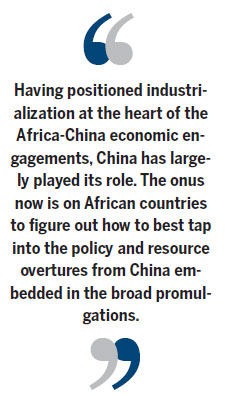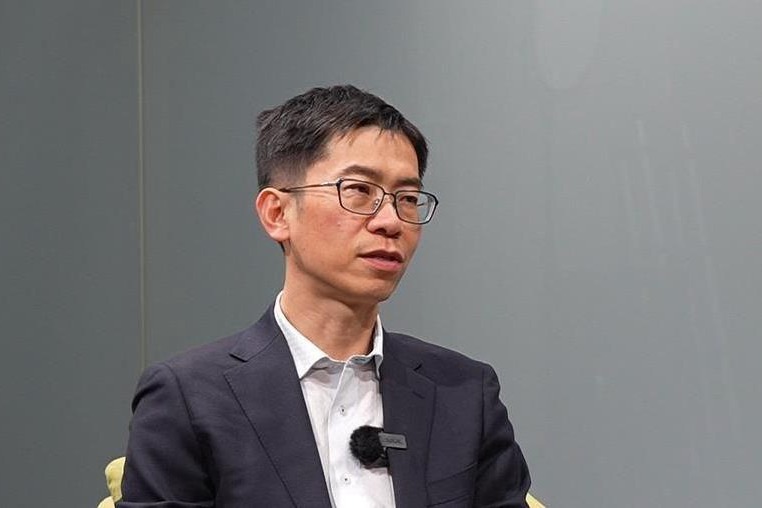Industrialization gets attention it needs

President Xi's proposals hold promise of converting Africa from backwater into an economic frontier
The Johannesburg Summit of the Forum on China-Africa Cooperation has surprised many people in many ways. While it was expected that elevation to the status of a summit rather than a ministerial meeting would lend sufficient gravitas, it is the details of the negotiations and eventual promulgations that have exceeded expectations.
The elevation of the Africa-China relationship to a comprehensive strategic cooperative partnership is perhaps as significant a development as any.
Every one of the economic proposals across sectors such as agriculture, mining and information communication technology made by President Xi Jinping holds the promise of converting Africa from a largely poverty-stricken backwater into a frontier of economic performance.
Africa's industrial revolution, however, holds much more promise than investment in other sectors. As rightly captured by Xi in a speech to the continent's leaders, financial magnates and top executives, "industrialization is an inevitable path to a country's economic success".
Xi was, in fact, touching on a matter that has been of concern to many Africans: the fact that the continent is a net exporter of raw materials and a net importer of finished products. More importantly, Xi did not stop at diagnosis but offered a raft of ameliorative pathways toward Africa's industrialization.
Indeed, an analysis of Xi's speeches over the two-day summit indicates that industrialization will form the core of Africa-China engagements over the next couple of years.

In line with the placing of industrialization at the core of Africa-China engagements - for instance, with an anticipated Chinese investment in agro-processing and industry-based value additions to Africa's vast natural resources - Xi touched on yet another important consideration. This is that China would share with Africa some of the strategies that it used to accomplish "what took developed countries hundreds of years."
It is heartening that China would not only provide capital and technology for Africa's long-delayed industrial takeoff, but would "sincerely share its experience" to "help African countries establish a sustainable development model and enhance their independent development capacity".
Coupled with plans for China's assistance to Africa in terms of technical training, this is a technology transfer and capacity building perspective without which industrial and manufacturing plans would come to naught.
Xi went out of his way to state: "China is ready to share, without any reservation, advanced applicable technology with Africa and combine Chinese competitive industries with African needs for development to deepen industrial cooperation."
It has often been pointed out that Africans fail to clinch job opportunities in Chinese-funded projects because of the low level of skills on the continent. Pairing investment in the industrial sector with establishment of institutions for technical and skilled training on the continent would help African youth secure jobs not only in Chinese-funded projects, but also spur related developments such as entrepreneurial and innovative industrialization and capacity for maintaining industries well into the future.
Having positioned industrialization at the heart of the Africa-China economic engagements, China has largely played its role. The onus now is on African countries to figure out how to best tap into the policy and resource overtures from China embedded in the broad promulgations.
The writer is a postdoctoral fellow at the University of the Witwatersrand, South Africa.
(China Daily European Weekly 12/11/2015 page8)
Today's Top News
- Japan tempting fate if it interferes in the situation of Taiwan Strait
- Stable trade ties benefit China, US
- Experts advocate increasing scope of BRI to include soft power sectors
- New engine powers cargo drone expansion
- China to boost green industry cooperation
- Manufacturing PMI rises in November






























